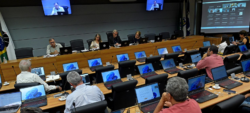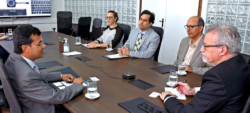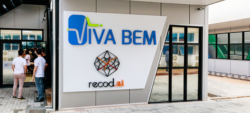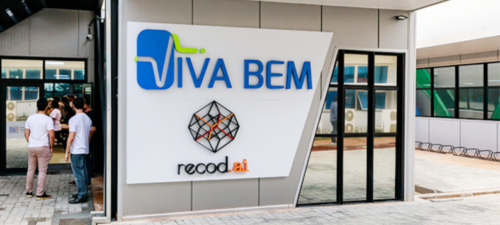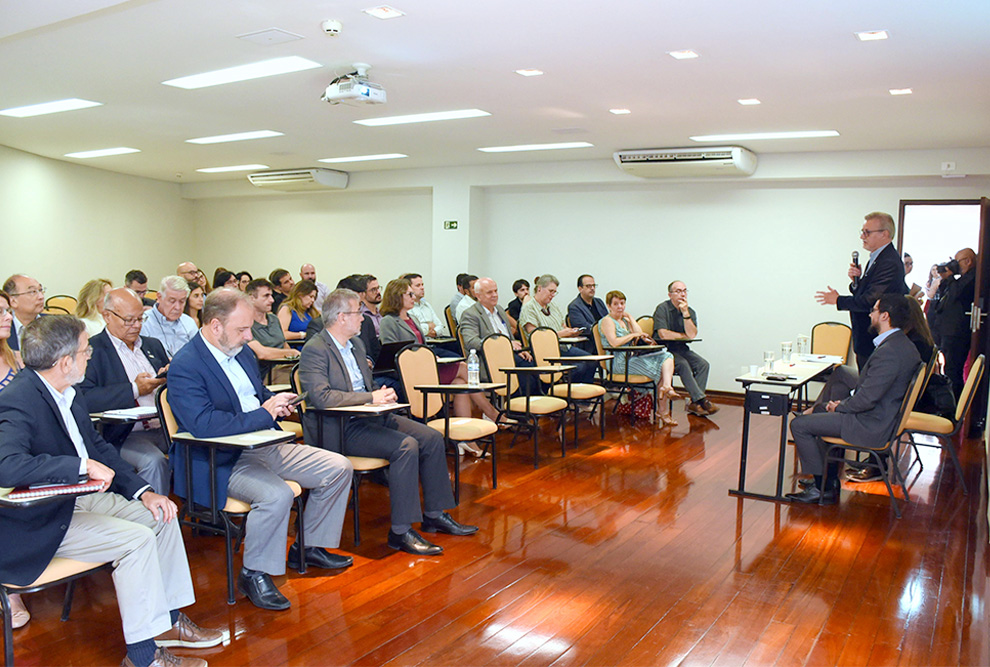
Unicamp received, this Wednesday (5), the visit of directors of the Brazilian Company of Research and Industrial Innovation (Embrapii). The group toured the campus and the university's research and innovation structures. They also participated in a meeting with directors of Unicamp faculties and institutes, coordinators of research centers and centers and leaders of large innovation projects. During the meeting, aspects of the approximation work between universities and companies carried out by Embrapii and innovation promotion modalities were presented.
Participating in the meeting were Igor Nazareth, interim president of Embrapii, Carlos Eduardo Pereira, director of operations, and Fábio Stallivieri, director of planning and institutional relations. They were welcomed by the dean Antonio Meirelles and general coordinator Maria Luiza Moretti.
“Contact with Embrapii is important for us to accelerate the process of transferring our knowledge to the industrial world”, commented the dean. According to Meirelles, it is important to promote the diversity of research and technologies carried out at the university and the synergy between them and the productive sector. “May this allow startups, small, medium and large companies, focused on social entrepreneurship, to find ways to produce even more innovation.”
Embrapii is a Social Organization that maintains management contracts with the Ministries of Science, Technology and Innovation; of Education; of health; and Development, Industry and Trade. Its work focuses on meeting the demands for innovation in the business sector through partnerships with scientific and technological research institutions, stimulating the country's industrial sector and fostering scientific research and innovation. “We took all the existing knowledge in the main Science and Technology Institutions (ICTs) in Brazil, the best in terms of science, technology and innovation, and brought it closer to market demand and companies, which need this innovation to become successful. become more competitive”, summarizes Igor Nazareth.
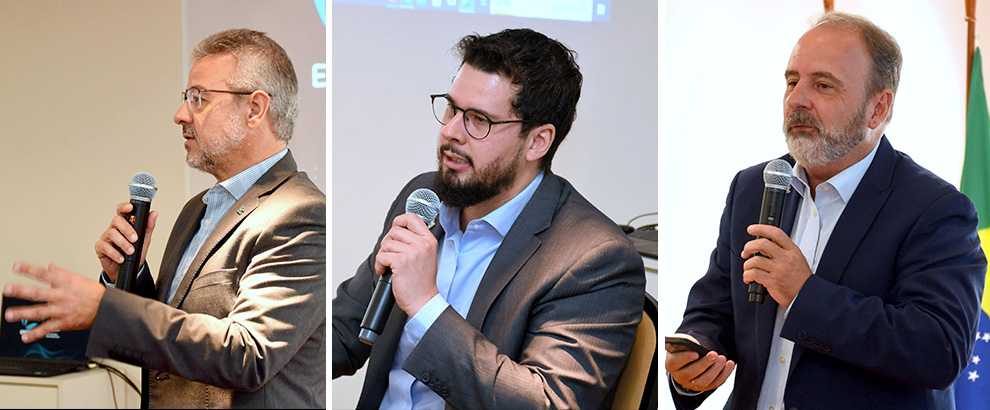
Currently, Embrapii maintains partnerships with 96 public and private research and innovation centers across the country. Throughout its history, 1.998 projects received support from the company and 1.371 partnerships with companies were signed. In total, investments made by these companies, by Embrapii and by other agencies involved in the projects, such as BNDES and Sebrae, amount to R$ 2,83 billion.
Unicamp has two partner units of Embrapii, the Medicinal Chemistry Center (CQMED), which has already had six projects supported, and E-Renova, focused on the study of renewable energy, recently accredited by the company. Investments in projects coming from the university add up to R$ 14,5 million, but the plan is for the number of partnerships and the amount of investments to grow even more. “We have here a wealth of knowledge and infrastructure that makes us certain that the partnership between Unicamp and Embrapii will be very fruitful both for the university and for the business ecosystem, in terms of developing innovative solutions that impact people's lives. ”, highlights the president of the company.
Throughout the presentation, they emphasized that closer contact with business demands brings benefits not only to the productive sector, but to the very scientific dynamics of universities. Carlos Eduardo Pereira comments that this is an impact factor for scientific research, which improves the performance of graduate programs, for example. “Many times, being a good researcher and having a close relationship with the business sector seems incompatible, but it is not”, he points out.
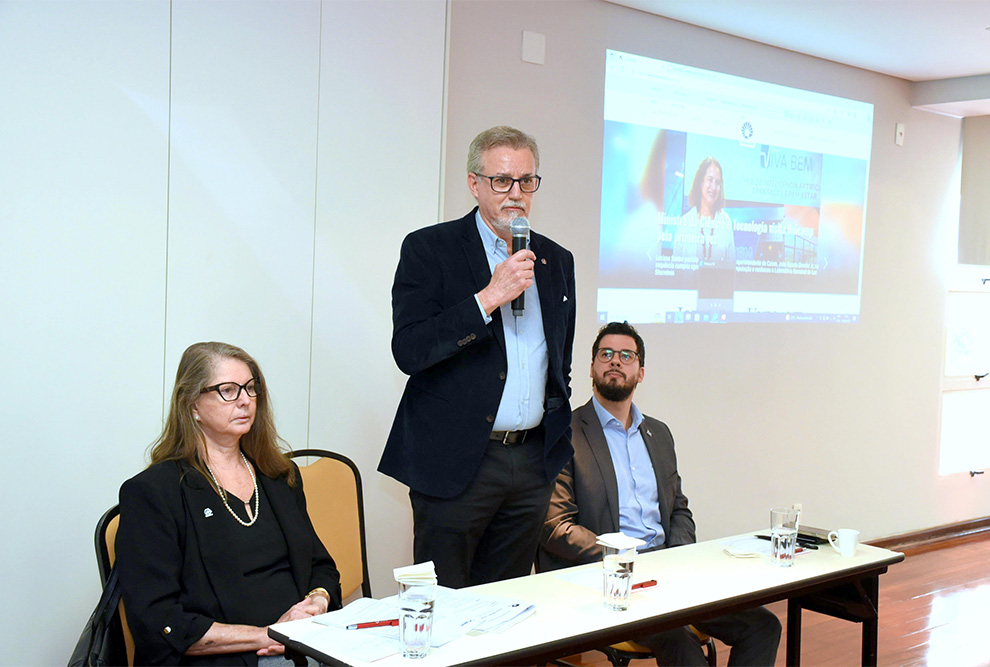
In addition to the support modalities for science and technology units, through partnerships with companies, they also presented trends for the future of support for innovation, such as the expansion of projects that contemplate the Sustainable Development Goals (SDGs) of the United Nations and the creation of Competence Centers, units that develop advanced technologies in frontier areas of knowledge, making Brazilian science and the productive sector emerge as references on the international scene. “We need to look at the skills that will be needed in the future. In many sectors, our country ends up following what is done abroad”, says Nazareth.
Originally published on Unicamp website
